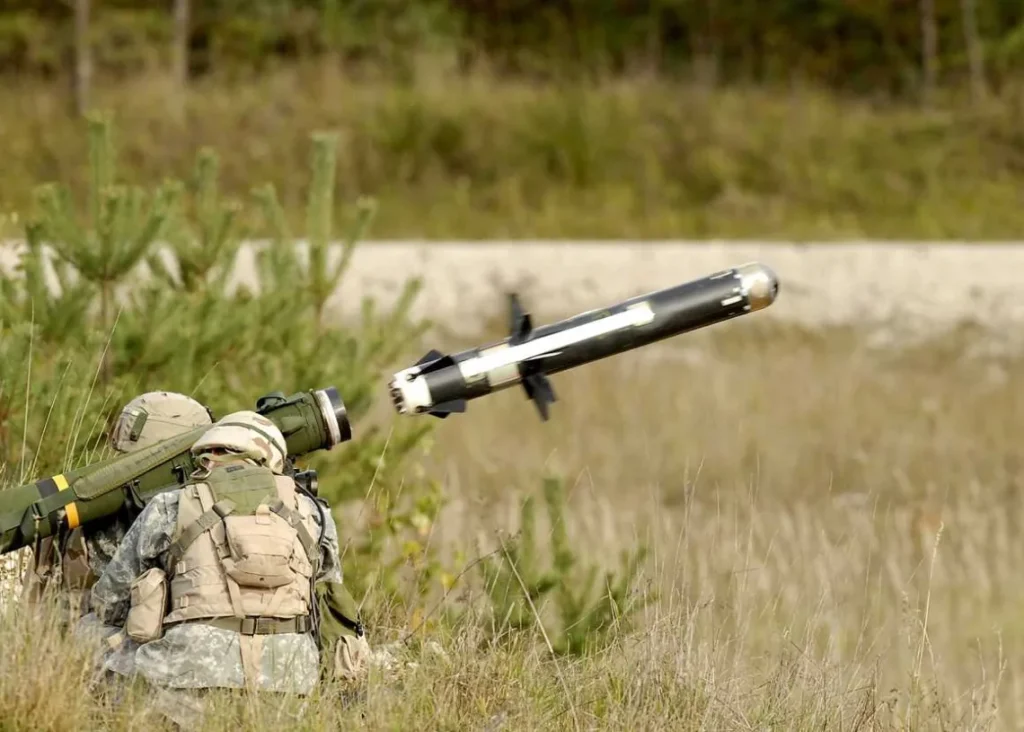Morocco is poised to enhance its military arsenal through a planned purchase of 612 Javelin anti-tank missiles and 200 launch units from the United States, in a defense package valued at approximately $260 million. The transaction was formally disclosed in a US Federal Register notice issued on May 30.
Though the sale is still subject to final approval from the US Congress, it has already secured the endorsement of the US State Department. The Defense Security Cooperation Agency (DSCA) initially notified Congress of the proposed sale in a letter dated March 19, addressed to Speaker of the House Mike Johnson.
The Moroccan request includes 612 Javelin FGM-148F missiles—12 of which are “fly-to-buy” units intended for evaluation—and 200 Javelin Lightweight Command Launch Units (LWCLUs). According to the official filing, the procurement aims to strengthen Morocco’s long-term defensive posture and enhance its ability to safeguard national sovereignty and respond to evolving threats.
Strategic Context and US Support
The Federal Register notice outlines that the proposed sale is consistent with US foreign policy objectives, particularly in reinforcing alliances with non-NATO partners. Morocco holds the designation of a Major Non-NATO Ally, reflecting its strategic importance to the United States in promoting regional stability, particularly in North Africa.
US defense officials emphasized that the acquisition will support Morocco’s ability to maintain territorial integrity, deter potential adversaries, and manage its national defense operations independently. The Moroccan military is expected to integrate the systems with minimal difficulty, given its existing capabilities and training infrastructure.
Components and Services Included in the Sale
The agreement extends well beyond the delivery of missiles and launchers. The deal encompasses a broad array of support elements, including missile simulation rounds, testing and calibration tools, manuals and technical publications, and power supply systems. Additionally, it includes spare parts, long-term maintenance support, technical and operational training for gunners and ammunition officers, and system integration testing.
Training and logistics support will be handled as part of a comprehensive sustainment program under the Tactical Aviation and Ground Munitions (TAGM) umbrella, ensuring that Moroccan personnel are fully equipped to operate and maintain the system effectively over its life cycle.
The manufacturing and system integration will be carried out by the Javelin Joint Venture, a partnership between Lockheed Martin (Orlando, Florida) and RTX Corporation (Tucson, Arizona). The notice explicitly states that there are no offset agreements attached to this proposed sale.
Renewed Momentum in US-Morocco Defense Ties
This procurement marks the first major arms deal between the two nations since former US President Donald Trump returned to office on January 20. It follows an earlier US proposal, made on April 15, to supply Morocco with 600 FIM-92K Stinger missiles—a more extensive package valued at around $825 million.
The current transaction fits within a broader pattern of increasing military collaboration that gained momentum during Trump’s first term. Notably, Morocco finalized a $1.5 billion purchase of 24 AH-64E Apache helicopters in 2019, followed by the acquisition of 25 new F-16 fighter jets worth nearly $3.8 billion and upgrade contracts for 23 existing F-16s valued at $985.2 million.
Overview of the Javelin Weapon System
The Javelin missile system, first fielded in 1996, remains one of the most advanced and battle-proven anti-tank platforms in the world. Designed for use by ground forces—including infantry, scouts, and combat engineers—it is a shoulder-fired, man-portable system that uses “fire-and-forget” technology. This allows the operator to launch the missile and immediately reposition or seek cover, reducing exposure to enemy fire.
The Javelin employs a tandem warhead to penetrate advanced armor and is capable of top-attack and direct fire modes. It features a sophisticated imaging infrared seeker that locks onto the target prior to launch. The system’s soft-launch capability means it can be fired from enclosed or fortified positions, offering operational flexibility in urban or rugged environments.
Weighing 49.5 pounds, the Javelin has an effective range exceeding 2,500 meters and can be mounted on a variety of platforms, including tactical vehicles, aircraft, and naval vessels. US documents affirm that Morocco can provide the same level of security for this sensitive technology as the United States, and the sale is not expected to impact the broader regional military balance.
Strengthening Regional Military Capabilities
With this acquisition, Morocco continues its efforts to build one of the most modern and capable armed forces in North Africa. The country’s expanding defense relationship with the US has included participation in numerous joint military exercises, most notably African Lion—the largest annual US-led military drill on the continent.
According to the official Federal Register publication, the funding for this $260 million agreement will come from Morocco’s national budget. Of the total cost, approximately $180 million is allocated for major defense equipment, with the remaining $80 million designated for services, training, and auxiliary components.
As Morocco advances its military modernization program, the integration of Javelin systems represents a significant leap in anti-armor capabilities—further positioning the country as a key strategic partner to the United States and a stabilizing force in the region.



